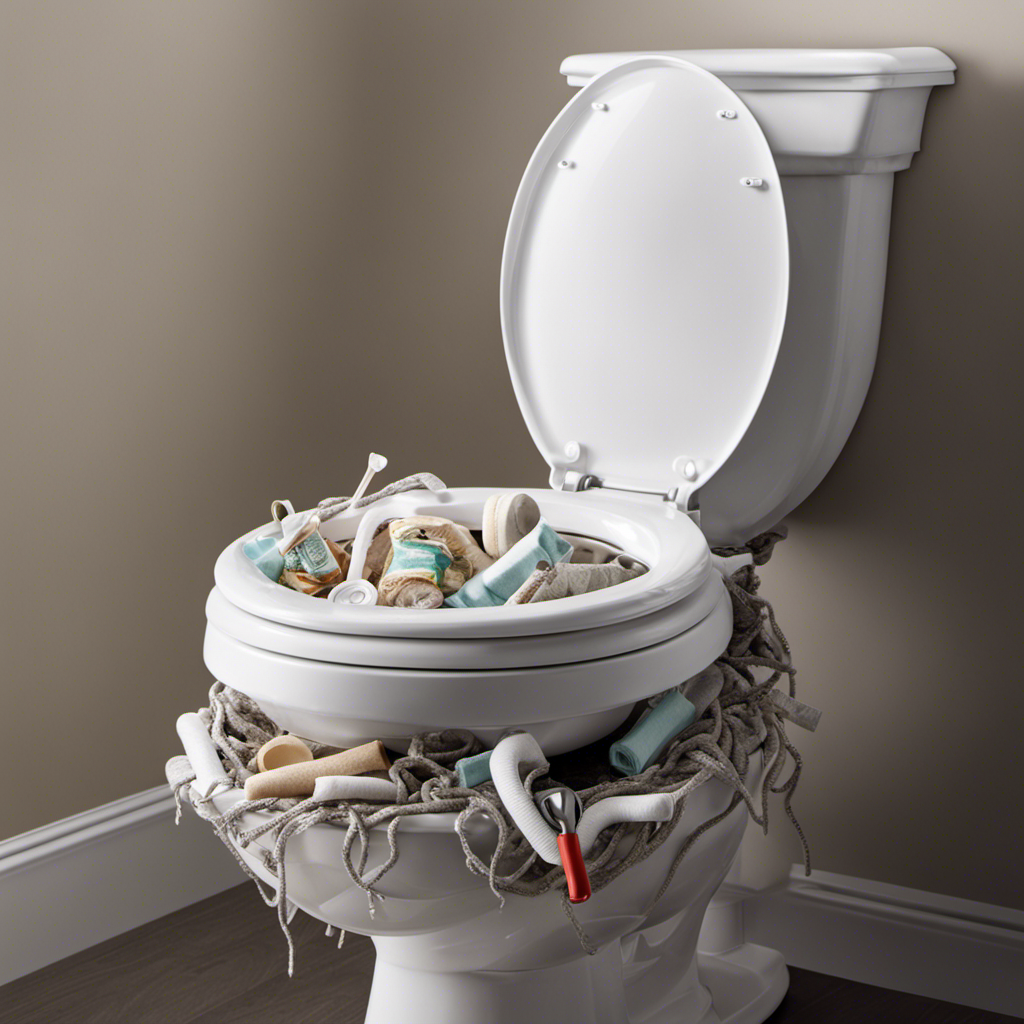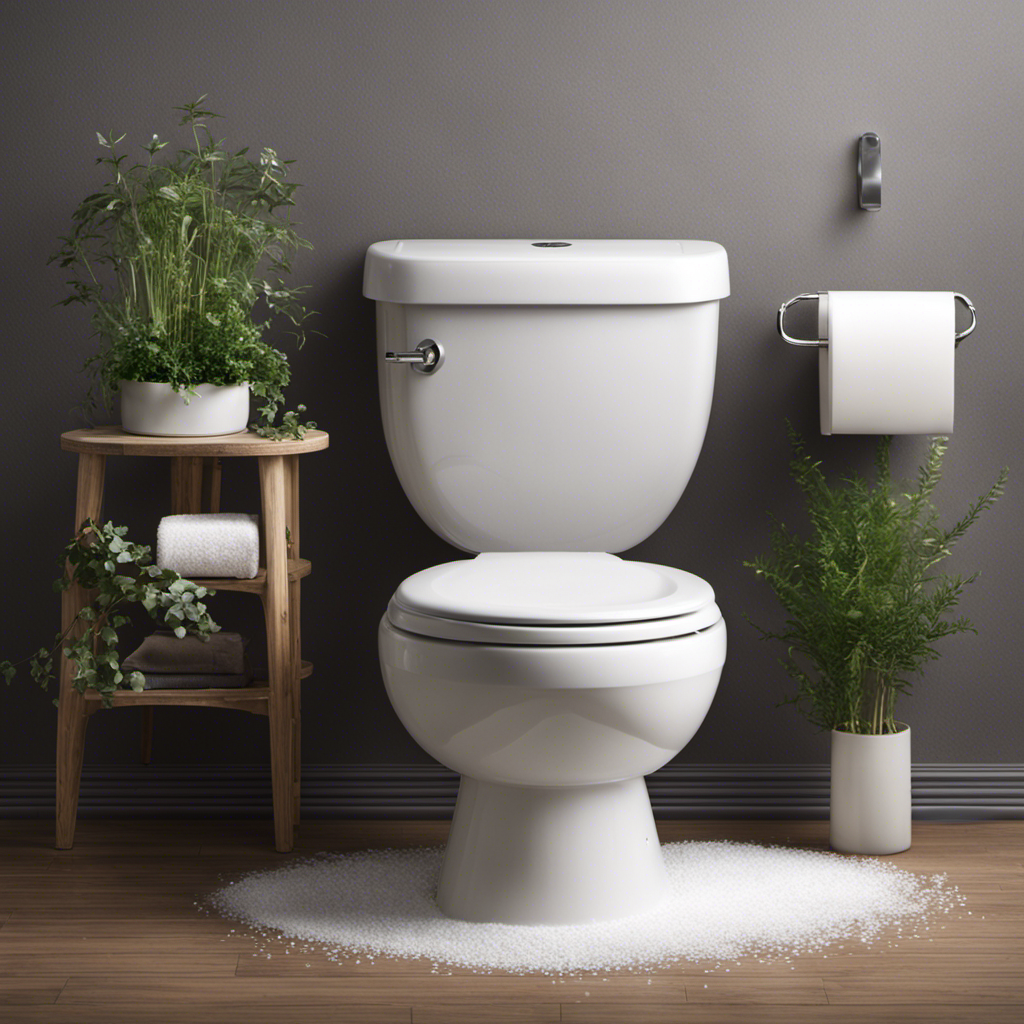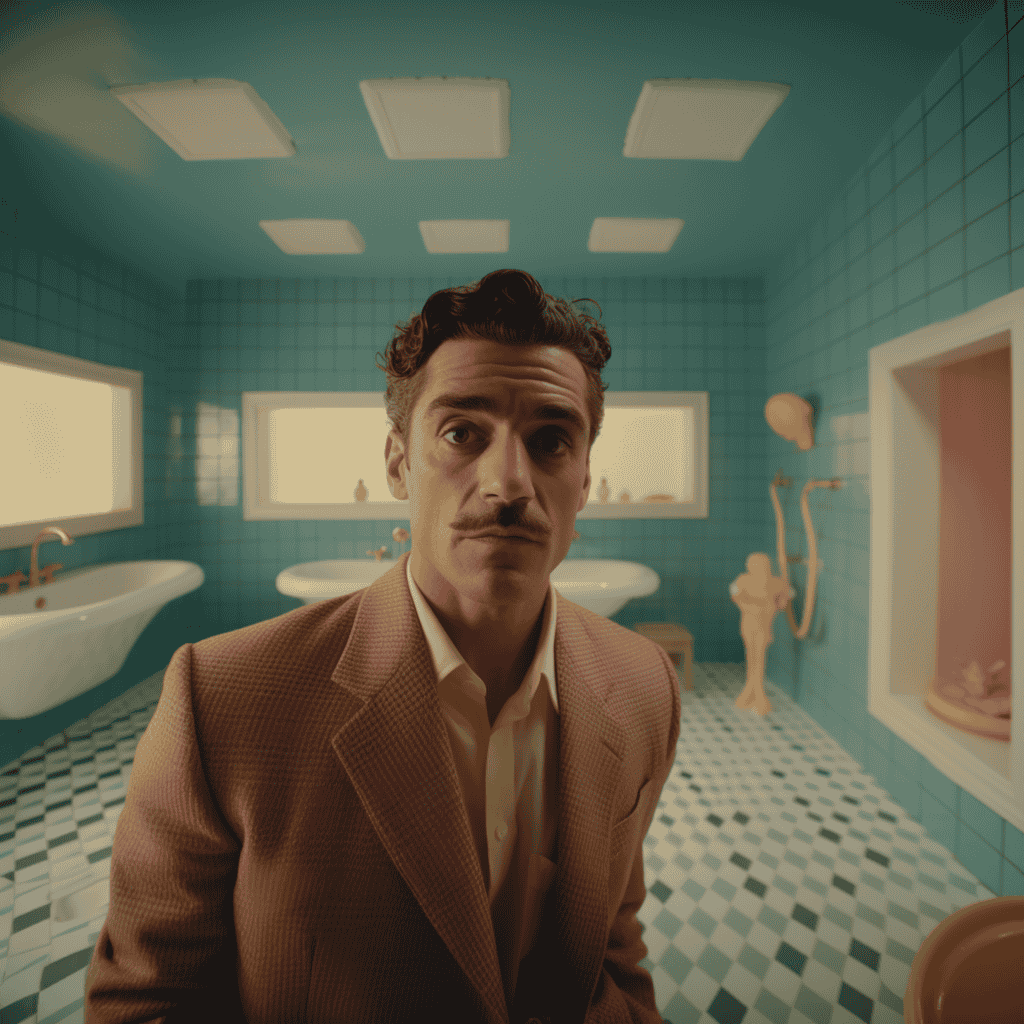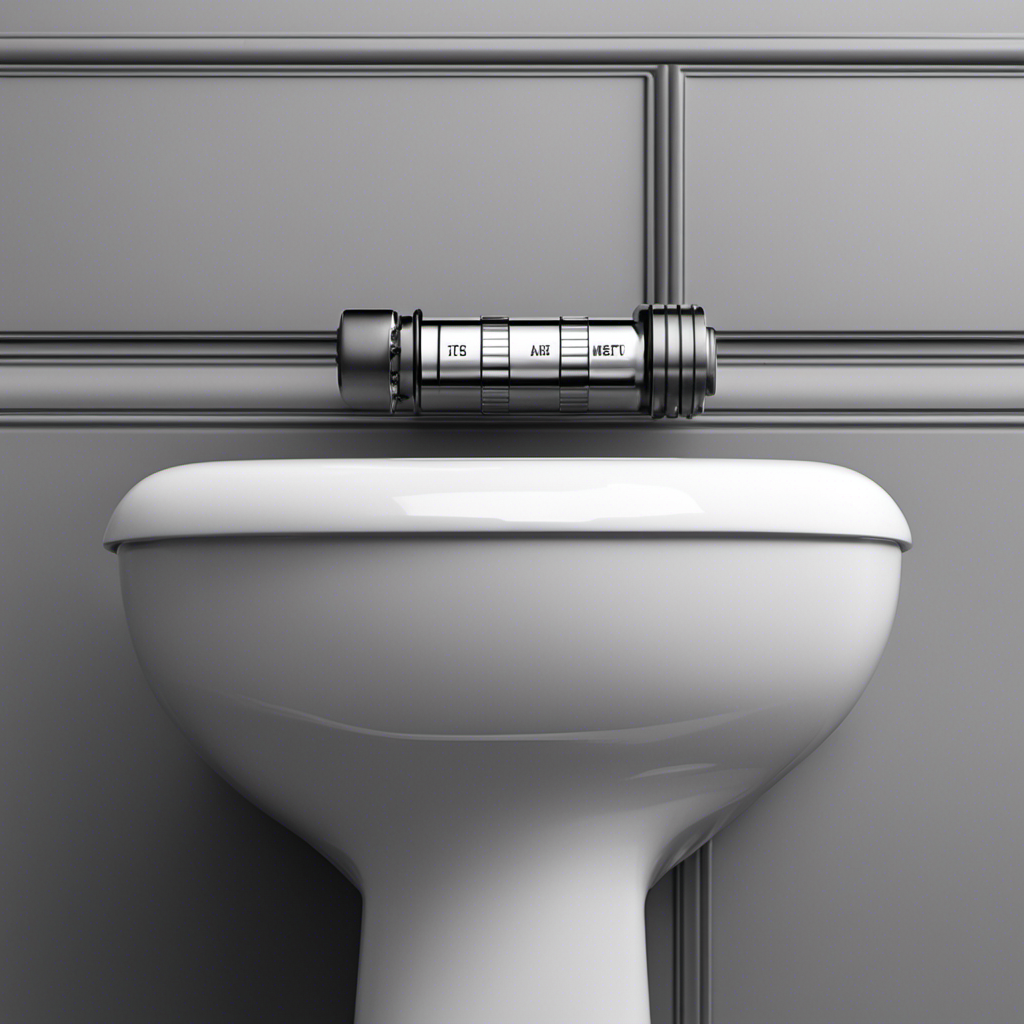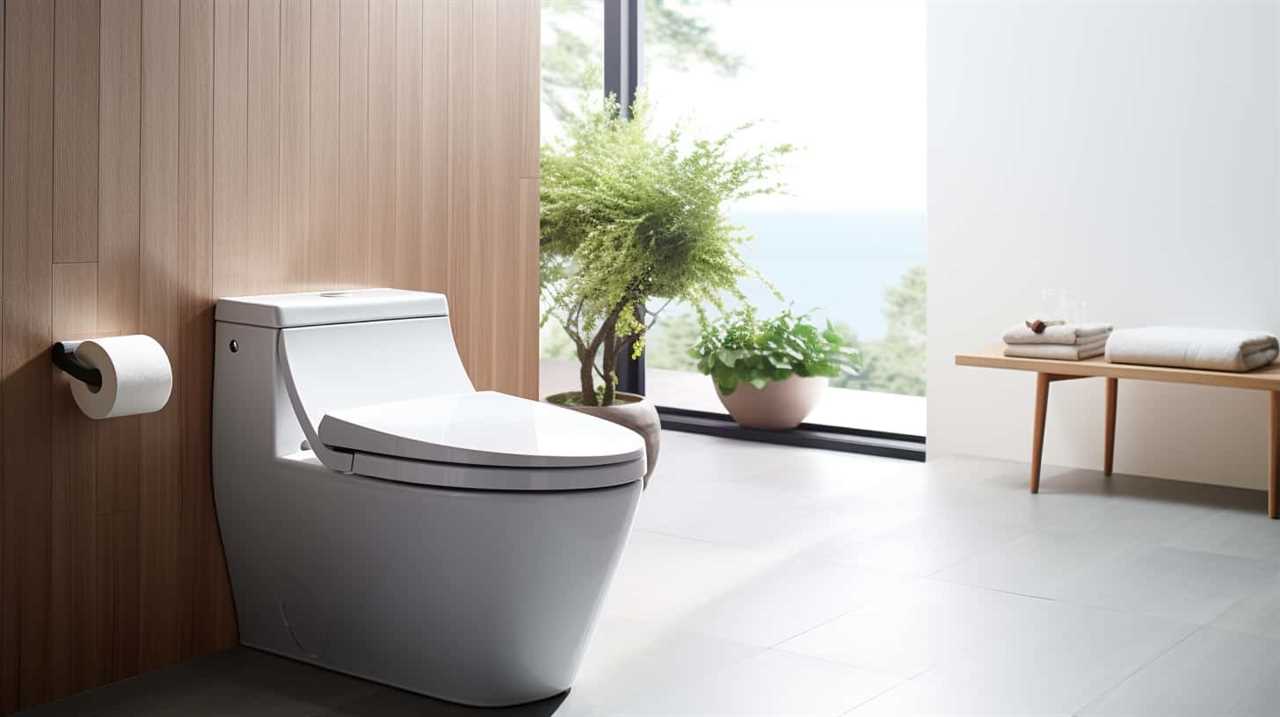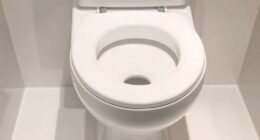Toilet clogs caused by the improper disposal of baby wipes have become an all-too-common headache for homeowners. These seemingly harmless wipes, although marketed as flushable, do not dissolve in water and can quickly accumulate, leading to costly plumbing problems.
Unfortunately, many individuals are unaware of the potential dangers of flushing baby wipes, which can wreak havoc on septic systems and utility lines.
In this article, we will explore effective solutions and practical prevention methods to help you avoid and resolve the dreaded toilet clogs caused by these non-flushable culprits.
Key Takeaways
- Baby wipes should never be flushed down the toilet as they are not flushable and can cause plumbing issues.
- The best way to unclog a toilet clogged with baby wipes is to manually remove them by hand or use a plunger or toilet auger.
- Regularly cleaning and maintaining the toilet can help prevent clogs caused by baby wipes.
- Educating household members about proper disposal of baby wipes and providing a trash bin next to the toilet can help prevent clogs.
The Dangers of Flushing Baby Wipes
Flushing baby wipes can lead to plumbing issues and harm septic systems, as they do not dissolve in water and can block pipes. The environmental impact of flushing baby wipes is significant.
When flushed, these wipes can end up in sewage treatment plants, where they can clog filters and disrupt the treatment process. They can also make their way into rivers, lakes, and oceans, contributing to water pollution and harming aquatic life.
To avoid these issues, it is important to consider alternatives to flushing baby wipes. One alternative is to dispose of them in the trash bin. Another option is to use flushable and biodegradable wipes that are specifically designed to break down in water.
Effective Solutions for Baby Wipe Toilet Clogs
Using alternative methods, individuals can successfully address toilet clogs caused by baby wipes. Here are three effective unclogging techniques to prevent toilet clogs and keep your plumbing system running smoothly:
-
Grab the baby wipes with your fingers by pinching and pulling them out of the toilet bowl. This manual removal method can be used for minor clogs.
-
Use a plunger to create pressure and try to unclog the toilet. Plunging can help dislodge the baby wipes and clear the blockage.
-
Use a toilet auger to reach and remove baby wipes from deep parts of the toilet bowl. This tool can reach areas that are difficult to access and eliminate the clog.
Factors to Consider in Preventing Toilet Clogs
Regular maintenance and proper disposal are key factors in avoiding potential plumbing issues caused by improper waste disposal. When it comes to preventing toilet clogs, implementing effective strategies is crucial.
One important factor to consider is the impact of the toilet’s condition on the risk of clogging. If a toilet is old or partially clogged, it becomes more susceptible to clogs caused by items like baby wipes. Regularly cleaning and maintaining the toilet can help prevent clogs from occurring.
Additionally, proper disposal of baby wipes is essential. Instead of flushing them down the toilet, dirty wipes should be disposed of in a plastic bag and thrown in the trash bin. Educating household members about the importance of proper disposal can also help reduce the likelihood of clogs.
Practical Prevention Methods for Baby Wipe Clogs
Educating household members about proper disposal methods is an effective way to prevent clogs caused by baby wipes. To effectively prevent toilet clogs from baby wipes, consider the following practical prevention methods:
-
Dispose of dirty baby wipes in a plastic bag and throw them in the trash bin. This ensures that the wipes do not end up in the toilet, causing potential clogs.
-
Place a trash bin next to the toilet for convenient disposal of baby wipes. This encourages proper disposal and prevents the temptation to flush them down the toilet.
-
Only flush organic materials like feces, urine, and toilet paper down the toilet. Avoid flushing baby wipes, as they are not designed to dissolve in water and can lead to clogs in the pipes.
The Importance of Proper Toilet Maintenance
Proper maintenance of the toilet is essential to ensure its functionality and prevent potential issues. Regular cleaning and inspection are necessary to identify early warning signs of clogs caused by baby wipes.
To keep the toilet in optimal condition, it is recommended to use appropriate toilet cleaning techniques. This includes using a toilet brush and a mild cleaner to scrub the bowl and remove any residue or buildup.
Additionally, it is important to pay attention to any changes in the flushing mechanism, such as slow draining or gurgling sounds, as these may indicate a developing clog.
Common Misconceptions About Baby Wipe Clogs
Many people mistakenly believe that flushing baby wipes down the toilet will not cause any issues. However, this is a common misconception that can lead to serious plumbing problems.
Here are three misconceptions about flushable wipes:
-
Flushable means they are safe: Contrary to popular belief, baby wipes labeled as ‘flushable’ are not actually safe to flush. These wipes do not break down like toilet paper and can easily clog pipes.
-
They dissolve in water: Baby wipes do not dissolve in water, which means they can accumulate in the plumbing system and cause blockages over time.
-
They won’t harm septic systems: Flushing baby wipes can harm septic systems by killing the beneficial bacteria responsible for breaking down waste.
To avoid these issues, it is important to use proper baby wipe disposal methods. Dispose of dirty wipes in a plastic bag and throw them in the trash bin. Educate household members about the importance of proper disposal to prevent costly plumbing repairs.
Frequently Asked Questions
Can Flushing Baby Wipes Down the Toilet Damage Utility Lines?
Flushing baby wipes down the toilet can cause damage to utility lines. The wipes do not dissolve and can accumulate, leading to blockages in plumbing systems. It’s important to properly dispose of baby wipes to prevent these issues.
How Can Regular Use of Baby Wipes in the Toilet Eventually Lead to a Clog?
Regular use of baby wipes in the toilet can eventually lead to clogs. The wipes do not dissolve in water and can build up, blocking the pipes. Preventive measures like proper disposal are crucial to avoid this issue.
Is It Safe to Use Bleach to Dissolve Baby Wipes in the Toilet?
Using bleach to dissolve baby wipes in the toilet is not safe. It can make the clog worse and damage utility lines. Instead, try alternative methods like manually removing the wipes or using a toilet auger.
What Are the Risks of Flushing Baby Wipes in Septic Systems?
Flushing baby wipes in septic systems poses risks, including potential damage to pipes, killing beneficial bacteria, and harming the environment. Baby wipes are not biodegradable and can cause clogs and costly repairs.
How Many Baby Wipes Flushed at Once Increase the Likelihood of Clogging?
Flushing multiple baby wipes at once significantly increases the likelihood of toilet clogs. To prevent this, individuals should explore baby wipe alternatives and practice proper disposal methods, such as disposing of dirty wipes in a plastic bag and throwing them in the trash bin.
Conclusion
In conclusion, preventing and resolving toilet clogs caused by baby wipes is crucial for maintaining a well-functioning plumbing system. By understanding the dangers of flushing baby wipes and implementing effective solutions, homeowners can avoid costly repairs and inconvenience.
Regular toilet maintenance and proper disposal of dirty wipes are key in preventing clogs. Remember, when faced with a clog, manually removing the wipes is the only solution. So, why risk damaging your pipes? Take the necessary steps to protect your plumbing and enjoy a hassle-free bathroom experience.
